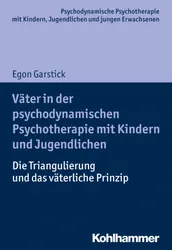Katharina Kaminski untersucht das Zusammenspiel von Bildung und Psychotherapie, das in den Anfängen der Psychoanalyse und Tiefenpsychologie sehr präsent war und vielfältige Entwicklungsprozesse bei Patienten und Mitarbeitern angeregt hat. Im Zuge von Ökonomisierung, einseitiger Medizinalisierung und Manualisierung der Psychotherapie gerät dies heute zunehmend aus dem Blick. Die Autorin knüpft an das ursprüngliche Zusammenwirken von Bildung und Psychotherapie an und forscht nach den kulturgeschichtlichen Ursprüngen eines für die Psychotherapie relevanten Bildungsbegriffs. Vorgestellt werden Platon, Humboldt und Nietzsche als Vordenker für ein personales Bildungsverständnis. Ziel ist dabei die Besinnung auf den Wert der Person im therapeutischen Geschehen. Diese wächst durch Selbsterkenntnis und vielschichtige Bildungsprozesse, die Patienten und Therapeuten betreffen. Damit wird Psychotherapie zu einem emanzipativen Prozess und bleibt nicht auf den Status einer reinen Krankenbehandlung reduziert.
Katharina Kaminski examines the relationship of self-formation (Bildung) and psychotherapy, which played a prominent role during the formative years of psychoanalysis and depth psychology, also stimulating a variety of developmental processes in both patients and practitioners. With economic factors, medical practice and instruction manuals becoming ever more significant, the focus on such concerns is being increasingly lost today. The author recurs to the original exchange relationship between self-formation and psychotherapy, and researches the cultural-historical origins of a concept of self-formation of relevance to psychotherapy. Plato, Humboldt and Nietzsche are presented as seminal thinkers formulating a personalist understanding of self-formation. The aim of the present study is to reflect on the value of the person in the psychotherapeutic context. This is enhanced by self-knowledge and a multi-faceted process of self-formation involving both patient and therapist. Hence, the practice of psychotherapy becomes emancipatory and is not reduced to the status of the purely medical treatment of patients.















